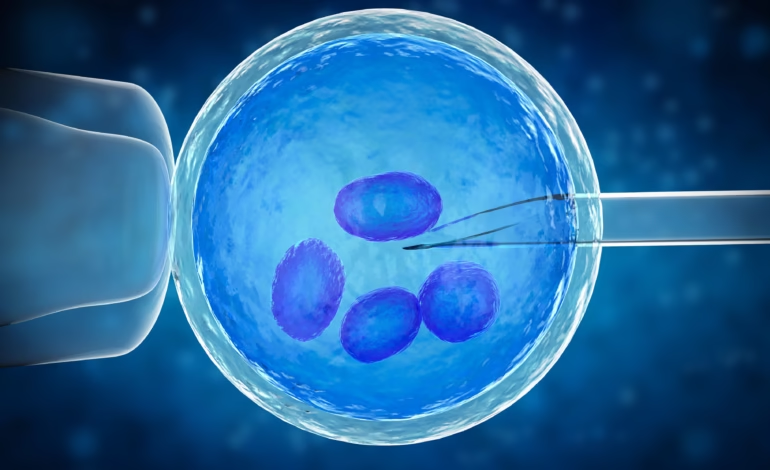Egg Freezing and the Myth of Control: What Science, Hope, and Biology Don’t Always Agree On
Not long ago, I sat across from a friend—successful, ambitious, and 38—who told me, “I froze my eggs because I wanted time. Time to not rush, to not panic. Time

Not long ago, I sat across from a friend—successful, ambitious, and 38—who told me, “I froze my eggs because I wanted time. Time to not rush, to not panic. Time to choose when and if I’ll be a mom.” I could see the relief in her expression—it sounded hopeful. But the process? Expensive, invasive, and emotionally intense.
Egg freezing is sold as freedom. But what does it really look like? Who is it actually best suited for? And are you mentally ready to navigate the downside?
Let’s unpack the process, the psychology, and the reality behind the clinic brochures.
Egg Freezing: What the Process Actually Looks Like
- Initial Consultation & Ovarian Reserve Testing
You’ll have bloodwork (AMH, FSH, estradiol) and a transvaginal ultrasound to assess egg quantity and ovarian health. These metrics shape your personalized stimulation protocol. - Hormone Stimulation (10–14 days)
You’ll self-administer daily injections of follicle-stimulating hormones to produce multiple mature eggs. Expect bloating, mood swings, occasional cramps, and a strict dosing schedule. - Egg Retrieval Procedure
Around day 10–12, under light sedation, an ultrasound-guided needle retrieves eggs from follicles. Though anesthesia helps, it’s still minor surgery—and discomfort afterward is common. - Freezing & Storage
The retrieved eggs are vitrified (a rapid-freezing method) and stored in ultra-cold liquid nitrogen. They’ll remain there, inert, until you choose to use them. - Future Use via IVF
When ready, eggs are thawed, fertilized in vitro, and embryos transferred. Success depends on egg quality, thaw viability, uterine health, and technique.
You’ll typically need two cycles—or sometimes three—to collect enough eggs. It’s a commitment in nearly every sense of the word.
Costs & Hidden Downsides
- Expense:
- Ovarian stimulation + retrieval: $6,000–$15,000 per cycle
- Annual storage fees: $500–$1,000
- IVF + embryo transfer later: $12,000–$20,000+ per cycle
Often, work insurance won’t cover much—if anything.
- Physical Risks and Discomfort:
- Hormone injections can cause bloating, mood swings, and fatigue
- Retrieval carries risks of bleeding, infection, and anesthesia complications
- Emotional Toll:
- Anxiety over “enough eggs”
- Guilt or pressure if cycles don’t yield viable eggs
- Stress of waiting years before actual pregnancy attempts
- Uncertain Return:
- Less than 10% of women ever use their frozen eggs
- Even with 10–20 eggs frozen before age 35, success isn’t guaranteed
Real Talk: Success Rates & Expectations
- Freezing 10–20 quality eggs before 35 can provide a 70–90% chance of at least one live birth.
- After age 38, success odds decline steeply.
- Many who freeze eggs never use them—often due to changed priorities or circumstances.
- It’s important to treat egg freezing as a backup plan, not a promise.
Doctor’s Perspective
“Egg freezing gives more options, but it’s not a guarantee,” says Dr. Priya Shah, a reproductive endocrinologist at San Francisco Fertility Center. “It’s best for women under 35 with good ovarian reserves who aren’t ready to become mothers yet. But it should be part of a broader family-planning strategy—not the whole thing.”
Her words rang true: this isn’t magic—it’s biology baked with preparation and realism.
Are You Mentally Ready?
Egg freezing is not just physical—it’s mental and emotional:
- Handling Uncertainty
The emotional weight of “What if it doesn’t work?” can be heavy. - Emotional Investment
Even thinking of eggs as “insurance” can evoke deep longing—or guilt. - Timeline Pressure
You might delay other life plans while waiting for cycle results or future IVF. - Planning for What Happens Next
Who will you partner with? Will infertility emerge later? Are you prepared for tough decisions if eggs don’t survive or IVF fails?
If you’re only considering egg freezing for fear, not choice—you might not be ready.
Who Is Egg Freezing Best For?

- Women under 35 with strong ovarian reserve
- Those delaying parenthood for career, relationships, or personal growth
- Being proactive before fertility declines significantly
- Understanding real costs and being comfortable with risk
- Seeing this as a backup—not a final answer
It’s most powerful when decisions are grounded in informed, intentional choice—not desperation.
Does It Really “Pause” the Biological Clock?
Yes—your eggs remain as young as the day they were frozen. But your uterus and overall reproductive system continue aging, as does your emotional and physical health. Egg freezing can pause part of your biological timeline, but the clock keeps ticking elsewhere.
Read About: Birth Control Methods You Need to Know: My Journey Through IUDs, Pills, and Emergency Contraception
Real-World Stories: Empowered—But Not Guarantees
- A friend froze eggs at 33, then met a partner at 36 and never used them. “Knowing I had the option freed me,” she says.
- Another friend had two cycles but only five viable eggs—her anxiety skyrocketed. It highlighted the emotional cost beneath the clinic optimism.
- Some women regret not freezing when they had the chance; others with frozen eggs still struggle with IVF failure later.
This isn’t binary. It’s real, and it’s messy.
Your Decision: Empathy Over Urgency
If you’re weighing egg freezing:
- Track your reproductive hormones early while you’re still hopeful
- Clarify your motivations: choice or pressure?
- Ask your doctor for data specific to your age and ovarian reserve
- Talk to women who’ve done it, both successful and not
- Design a plan that fits your timeline, emotionally and financially
Egg freezing isn’t a finish line. It’s just one tool—one possible path.
Pause With Purpose
Egg freezing can give you leverage, not certainty. It can relieve pressure, but often brings new questions. If it aligns with your timeline and values—and you go in informed and emotionally ready—it’s a powerful option.
But it must be a choice made with courage, clarity, and compassion—for yourself and your future self.
Time may not wait—but your informed decision can.
By Steven Grillo for Ravoke.com








